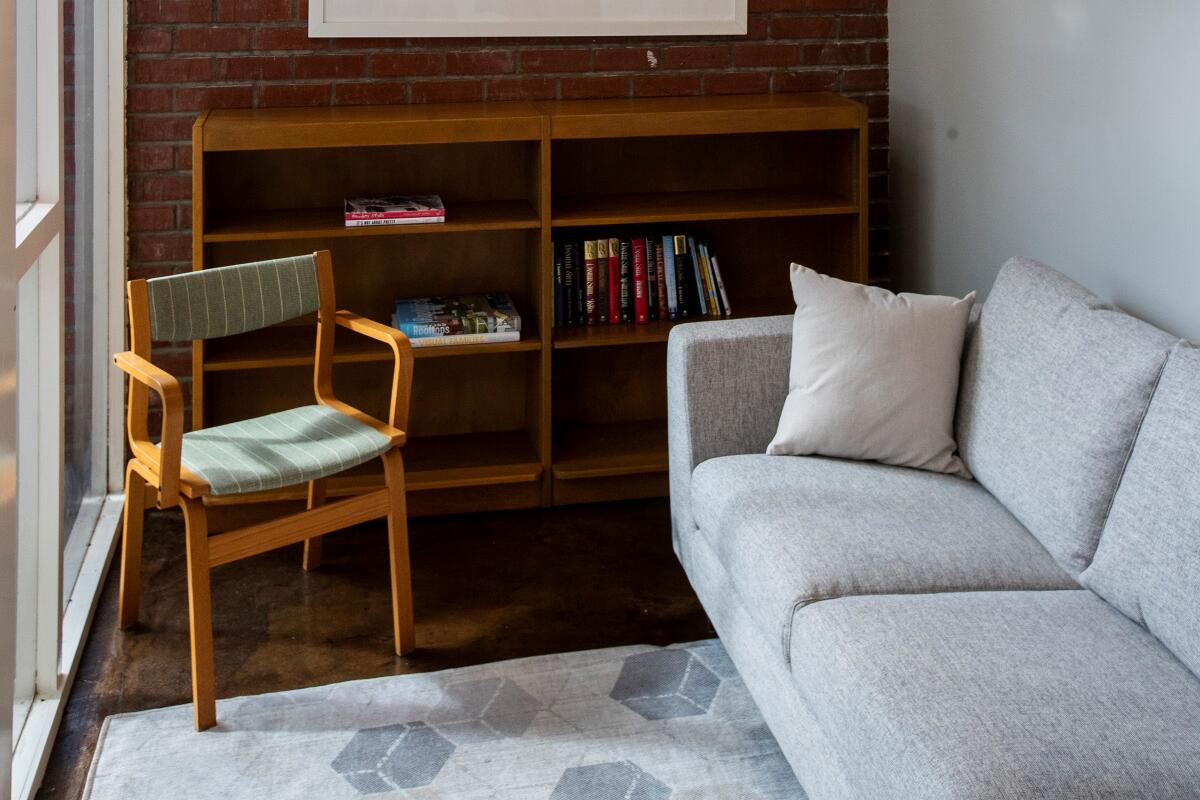A Word, Please: Stay ‘awhile’ and learn how it differs from ‘a while’

- Share via
I’m often astounded by the way people use “awhile” and “a while.” And, no, I’m not shocked by how badly they choose between these terms, but by how well.
To understand when “a while” is preferable to “awhile,” you need a firm grasp on grammar concepts most of us are never taught: the true nature of adverbs, how adverbs differ from adverbials and how prepositions work with objects. Yet people who never learned those concepts often get “a while” and “awhile” right anyway.
For example, when I do a Google search for “Let’s just wait for a while,” which is correct, I get about 470,000 hits. But when I search for “Let’s just wait for awhile,” which is wrong, I get fewer than 16,000 hits.
Here’s what most English speakers don’t know they know about “a while” and “awhile.”
For starters, we’re talking about different parts of speech. “A while” is a noun. Well, technically it’s a noun phrase because it has more than one word. But that’s splitting hairs. A noun phrase works just like a noun.
“Awhile” is an adverb. Contrary to what your third-grade teacher may have led you to believe, adverbs aren’t just those ly words that describe actions. Instead, an adverb answers the question “when?” “where?” or “in what manner?” Plus, sentence adverbs like “therefore” and “however” modify whole clauses or sentences. So if you look up “tomorrow” in a dictionary, you’ll see that it’s both a noun and an adverb. That makes sense because it answers the question “when?” Another example: “There” is also an adverb because it answers the question “where?” Sometimes, these rules for adverbs are a less intuitive, which is why it’s not completely clear that “awhile” answers the question “when?” But it deals with time the same way, so it’s an adverb.
“For” is a preposition. Prepositions take objects, which are always either nouns, pronouns or whole phrases or clauses working as nouns. So when you buy a gift “for Walter,” the noun “Walter” is the object of the preposition. If you’d rather say you’re buying a gift “for him,” the pronoun “him” is the object of the preposition.
Adverbs can’t be objects of prepositions. You can’t say “for quickly” or “at happily” or “with slowly.” And because “awhile” is an adverb, you can’t say “for awhile.” Only the noun form can go there: for a while.
You might guess that, if “awhile” can’t be used as a noun, then “a while” can’t be used as an adverb. So you’d surmise that “stay awhile” is correct and “stay a while” is wrong. Not so. The reason: adverbials.
An adverbial is any part of speech that does the job of an adverb. That includes nouns. For example, according to dictionaries, “Tuesday” is a noun. But notice how you can use it the same way you use the adverb “tomorrow.” “He arrives Tuesday” works just as well as “He arrives tomorrow.” So why isn’t “Tuesday” considered an adverb? Because dictionary-makers have specific methods for categorizing words, which are based on frequency of usage. And “Tuesday,” apparently, doesn’t get used as an adverb as often as “tomorrow,” perhaps because people often say “on Tuesday” instead of just “Tuesday,” making it the object of the preposition “on” and thus a noun.
“On Tuesday” answers the question “when?” so it’s a multi-word phrase doing the job of an adverb. That makes it an adverbial.
The same is true for “a while.” When it’s used like an adverb, it’s an adverbial. That’s why “a while” can work as an adverb even though “awhile” can’t work as a noun.
It’s usually best to use “awhile” whenever you need an adverb: Stay awhile. It’s not wrong to use “a while” as an adverb, too: Stay a while. But after “for” or any other preposition, you need the two-word version: Stay for a while.
June Casagrande is the author of “The Joy of Syntax: A Simple Guide to All the Grammar You Know You Should Know.” She can be reached at JuneTCN@aol.com.
All the latest on Orange County from Orange County.
Get our free TimesOC newsletter.
You may occasionally receive promotional content from the Daily Pilot.





